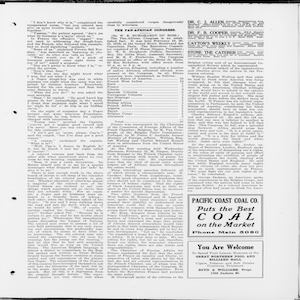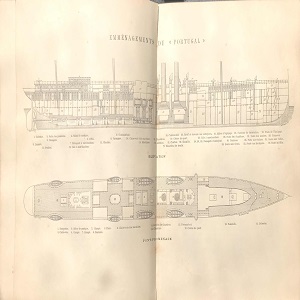Modern (1800 CE - 1950 CE)

Photograph of "Principal Chiefs" from West Africa
The following is an image that appears in the on page 296 in the book Britain Across The Seas: Africa; A History And Description Of The British Empire In Africa published in 1910 and written by Harry Johnson. This particular photograph was taken by Capt. T.C. Hincks.

W.E.B. DuBois Details the 1919 Pan-African Congress in Newspaper Article
This article comes from Cayton’s Weekly, a historically Black newspaper published in Seattle, Washington. The article, written by W.E.B. Du Bois, offers readers insight into the 1919 Pan-African Congress held in Paris, France.

Newspaper Article Promoting the Pan-African Congress
This article appears in the August 4, 1921 edition of the Omaha, Nebraska based newspaper, The Monitor. The Monitor was an African American run newspaper and typically featured stories about African Americans.

Olympic Games Poster, Stockholm, 1912.
This is an image of a poster advertising the 1912 Summer Olympic games held in Stockholm, Sweden. This particular poster was created by the artist Olle Hjortzberg as part of an advertising campaign.

Ship Plan of a Late-19th Century Steamship
This ship plan from the late-19th century offers a partial view of spatial arrangements within a Messageries steamship.

Shipping Company Route Map from 1889
This route-map of the Messageries Maritimes shipping company displays the main routes connecting metropolitan France to its empire in the Indo-Pacific. While the map dates to 1889, these routes retained their basic structure through the 1950s.

Newspaper Report on Pan-African Congress's Response to U.S. Lynchings
This November 19, 1921 article comes from The Chicago Whip, a Chicago-based newspaper founded by William C. Linton, an African American editor and publisher originally from Atlanta, Georgia. The paper frequently reported on racial inequality in the United States.

Quilted bedcover of Elisabeth Chapman
This quilted bed cover was likely made for the marriage of John and Elisabeth Chapman on September 19, 1829.

"Strange Fruit" by Billie Holiday (1939)
Based on a poem by Abel Meeropol published in January 1937, “Strange Fruit” was a song protesting the lynching of African America

Laws of Manu
The Manu-smriti, or Laws of Manu, are of the most authoritative codes of Hinduism in India, dating back to approximately 1